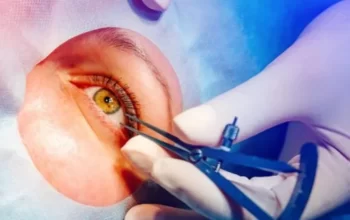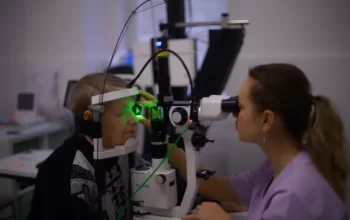
It doesn’t matter what kind of laser eye procedure you’re planning for, your eyes will need time to recover before you get back to your regular day-to-day activities. Driving is not an exception. your eyes may be blurry immediately after your surgery and you may still be drowsy from the sedative, so it’s important to not get behind the wheel right away. After having laser eye surgery, find out everything you need to know about driving.
After LASIK Surgery, Can I Drive Myself Home?
Patients who undergo LASIK eye surgery will be able to leave the hospital and return home after the procedure. Following surgery, some patients may experience an immediate improvement in their vision, while others may experience some degree of blurriness. In any case, after LASIK surgery, patients are unable to drive themselves home and will require a friend or family member to take them.
Patients may experience blurry vision as well as drowsiness from the sedative used to keep them at ease during surgery, making it impossible for them to drive themselves home in a safe manner. It may be too risky for patients to safely drive at this time due to the eyes’ increased sensitivity to light and excessive watering right after surgery.
When After Having LASIK, Can I Drive?
It is typically okay 24 hours after your LASIK eye surgery to resume driving. The day after your LASIK procedure will be your first post-operative appointment. You are cleared to get back behind the wheel once your vision has been evaluated and determined to be safe for driving. However, keep in mind that just because you are able to drive does not mean your eyes have finished healing. Be sure to adhere to all post-operative instructions to ensure the ongoing healing process. Typically, this entails using lubricating eye drops as directed, using prescription eye drops, and keeping your eyes free from contact and rubbing. After LASIK, sunglasses are always advised.
When After PRK, May I Drive?
Based on the nature of the surgery, your eyes will need longer to recover after photorefractive keratectomy (PRK) surgery than after You will have appointments at Providence Eye on day one and day five after LASIK surgery. PRK patients usually have a vision that is suitable for driving by day five. It’s crucial to schedule your surgery for a time when you can comfortably stay at home for a few days.
How Soon Can I Drive After A LASIK Procedure?
The amount of time that each patient must wait before driving after LASIK surgery will vary depending on them. However, the majority of people receive their doctor’s approval to drive as soon as the day after surgery. The day after surgery, a post-operative exam will be conducted.
The patient was examined, and the vision is examined. The majority of patients will no longer require eyeglasses and may be given paperwork by their doctor to submit to the Department of Motor Vehicles in order to have any corrective lens restrictions removed from their driver’s license.s license. Patients will be able to drive once their vision has been assessed and determined to be adequate for safe operation.

Candidates For LASIK Surgery
LASIK surgery is frequently an excellent choice for many people who want to see better without eyeglasses. Ideal candidates should be in good general health, including their eyes. Candidates also need to be older than 18 and have had stable vision for at least a full year before surgery.
A serious eye condition like glaucoma, keratoconus, or chronic dry eye generally precludes a candidate from being accepted. Women who are expecting or nursing are also not the best candidates, but they might be after they stop.
The Benefits Of LASIK Surgery
LASIK surgery has a lot of advantages. People with nearsightedness, farsightedness, or astigmatism may benefit from LASIK surgery to improve their vision. Many patients who have LASIK surgery are able to see clearly without the need for eyeglasses or uncomfortable contact lenses, helping to improve confidence and comfort.
Preparing For Your Treatment
Once you’ve booked a date for your laser eye correction treatment, you’ll need to arrange a lift to drop you off at the hospital or travel in by public transport. We do not advise using the underground or traveling alone after surgery. On the way back, it is advised to use overground transportation systems and to have a companion if you decide to take public transportation.
The ideal situation is for someone to pick you up after your treatment. Most of our eye hospitals and clinics provide plenty of free parking, so whoever’s dropping you off will have no problems with parking.
If you’re visiting our country, central The London Eye Hospital, please probably find public transport or a taxi the best options, as the hospital is located right in the heart of the city.
Do I Need My License Updated After Laser Eye Surgery?
It’s possible that the restrictions on corrective lenses on your driver’s license were waived. in this case, you will need to make a trip to the Visit the DMV to update your license’s vision status. Within 30 days, this should be finished. When you are stopped, if you haven’t updated your vision status with the DMV, you might be issued a citation. You should keep proof of your vision correction surgery and your new vision in your car.
For any laser eye procedure, make sure a trusted friend or family member is available to drive you to and from your appointment on the day of surgery as well as the post-operative appointments. Take all the safety measures you can to protect your eyes, from wearing sunglasses and protective glasses to keeping water out of your eyes. Even though you will be enjoying your new vision, your eyes are still healing, and your vision may fluctuate in the days and weeks following your laser eye surgery.
Taking Care On The Road After Laser Eye Surgery
Nighttime effects are to be anticipated following laser eye surgery for all patients, regardless of age or prescription.
It’s all in the eye.s natural healing response to the treatment. Nearly immediately following laser eye surgery when you’re already experiencing its incredible effects — the eye launches into recovery mode, managing swelling in the area and adjusting to its new shape.
This may cause you to momentarily notice the glare that surrounds bright lights, or ‘halos’ and ‘starbursts’. Many patients go about their recovery after Laser Eye Surgery without noticing anything out of the ordinary, yet it’s important to be aware of glare as it can affect your ability to drive at night.
The first thing to keep in mind is there’s always a backup plan in case something goes wrong.s no need to worry — it’s a healthy sign your eyes are recovering and adapting to the treatment. Secondly, it’s wise to limit your nighttime driving to shorter distances if at all possible. Also, always remember to carry lubricating eye drops with you to prevent your eyes from drying out.
Lastly, the nighttime effects of Laser Eye Surgery tend to last a few weeks or a few months at most, but if you experience prolonged effects your clinic should always be on hand through the recovery process to address any of your concerns.
Conclusion
There may be many questions when thinking about getting LASIK, and normal. After your LASIK procedure, you cannot drive yourself home. As a result, you’ll need to arrange a ride. You might feel like you can drive home after your procedure given the improvements in your vision you might notice, but you cannot. After your procedure, there might be some blurriness. Additionally, the numbing eye drops used during surgery may make your eyes sensitive to light for a few hours afterward. Your reaction time will be slowed down if you chose to take sedatives prior to surgery, which is yet another reason why you shouldn’t drive yourself home from the hospital.



